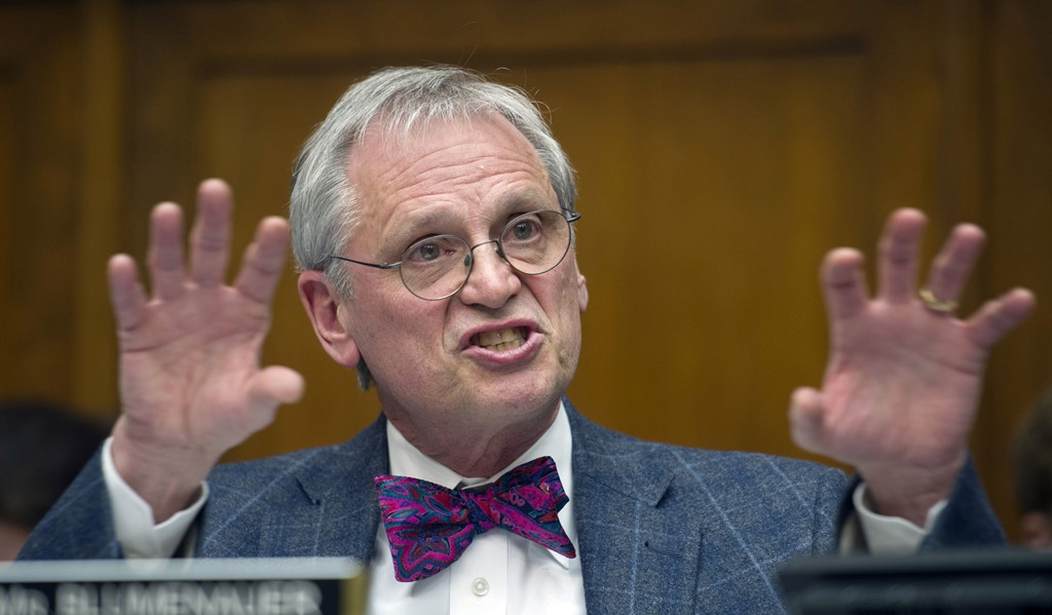I’m surprised it took this long for Democrats to propose this scheme. So far, the world has seen only two tourist flights into space, and one of the most notable reactions has been grumbling over the supposed waste of resources. Rep. Earl Blumenauer (D-OR) wants to apply the usual disincentives to behavior that proves unpopular among Democrats — hefty taxes:
Rep. Earl Blumenauer (D-Ore.), who is spearheading the effort, said rich space dilettantes should have to pay taxes for those flights, and noted special concern about the environmental impact of sending people into space on trips with no “scientific value.”
“Space exploration isn’t a tax-free holiday for the wealthy. Just as normal Americans pay taxes when they buy airline tickets, billionaires who fly into space to produce nothing of scientific value should do the same, and then some,” Blumenauer said.
The details: The Oregon Democrat has not released text of his legislation yet, but he said it will include a per-passenger tax on the price of a commercial flight to space, similar to an airline ticket.
He’s also calling for a two-tiered excise tax, the first of which would apply to suborbital flights between 50 and 80 miles above the earth’s surface, and the second tier, a “significantly higher” tax, for flights more than 80 miles in the air.
Let’s start with Blumenauer’s allegation that these flights had “no scientific value.” In reality, the private space platforms have filled a scientific-research gap that NASA had pretty much conceded even before the end of the space-shuttle program. Their bureaucracy failed to produce a follow-on space vehicle, and then failed to even build new rockets to send its own astronauts into space. NASA had to outsource that task to the Russians for years until Elon Musk’s SpaceX finally built a launch platform for manned space flight — and unlike NASA’s efforts, made it a fully reusable platform as well.
The first flights of Virgin Galactic and Blue Origin might not have had a specific and separate scientific mission, but those were both essentially test flights for proof of concept for human travel into space on their own reusable platforms. Neither may have achieved orbit, but neither did NASA on its first two manned space flights, either. The process will eventually produce flights that can achieve orbit, service scientific platforms such as the International Space Station, and potentially be part of larger NASA-run exploration missions of the moon, Mars, and beyond.
That kind of competitive, innovative private market is precisely what NASA needs to extend its own usefulness. In order to sustain it, however, the private companies need to make their massive investment pay off. That means space tourism as well as quicker transport for terrestrial travel, both innovations that will eventually benefit more than just billionaires. Less than a century ago, air travel was an innovation for the wealthy, where first adopters proved the market concept and created the demand that eventually lowered prices to allow access to working-class Americans.
When the industry starts offering regular commercial service, then perhaps taxes will make some sense to compensate for whatever governmental oversight is required. Right now, however, these billionaires aren’t going on “tax free holidays,” but basically saving NASA from the consequences of a generation of stagnation and neglect. If they can fund that innovation by selling a few tickets to wealthy investors while refining and extending the usefulness of these platforms, Congress should cheer that rather than ankle-bite from the sidelines with cheap talk about the entrepreneurs who will reopen space to American exploration.








Join the conversation as a VIP Member